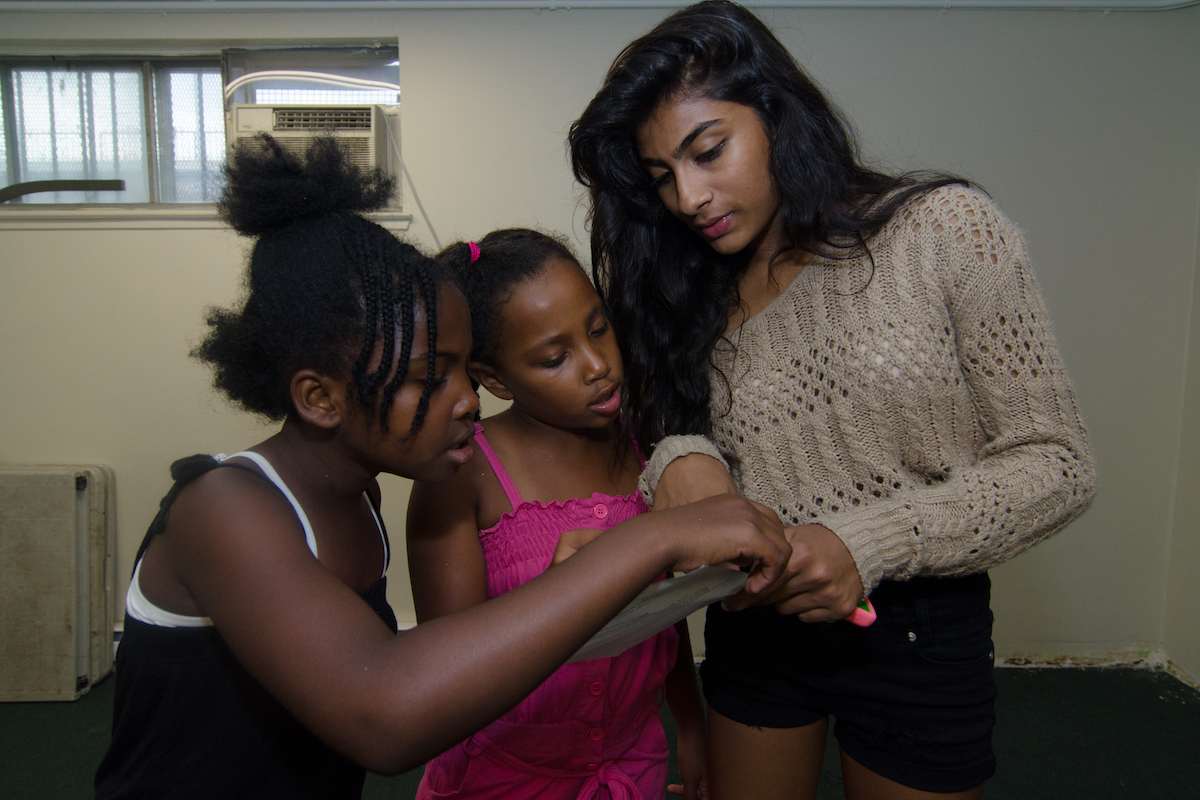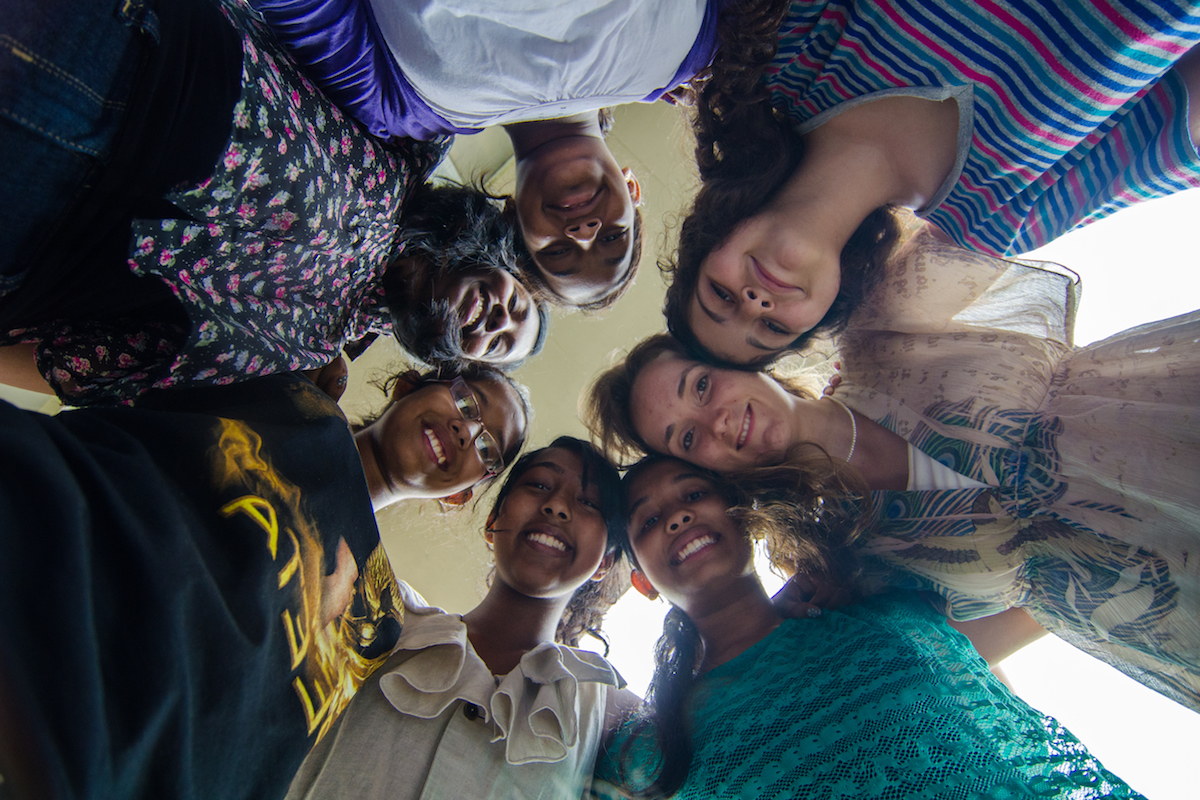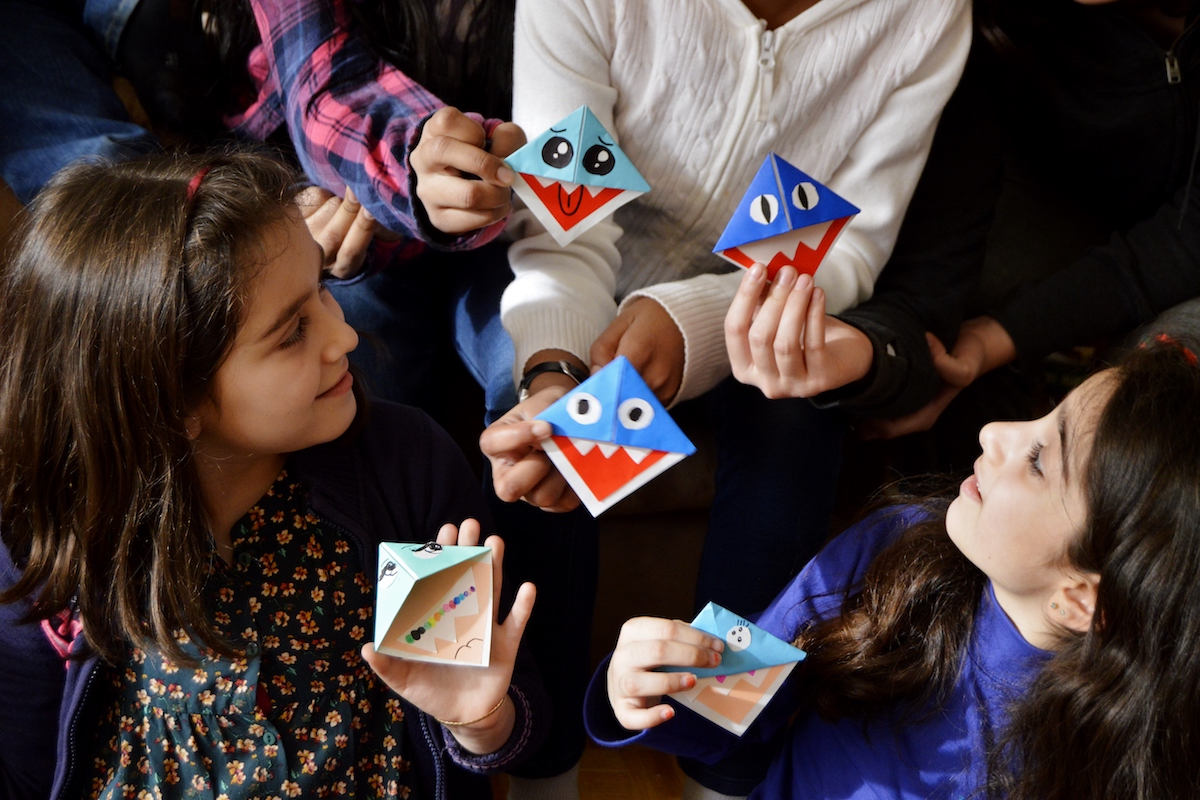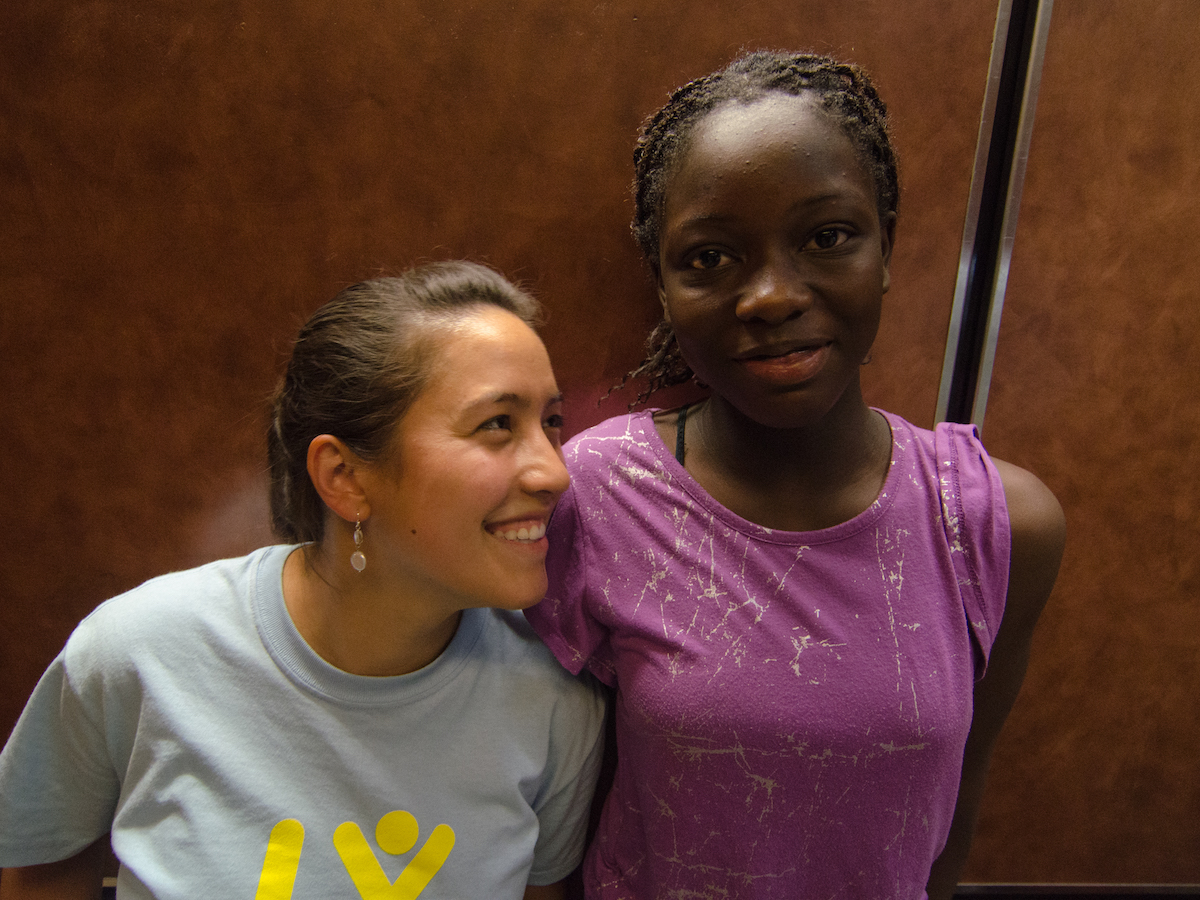Mining gems of inestimable value
Tending to the spiritual education of children and young teenagers is an especial preoccupation of Toronto Bahá’ís and their peers, and has been for some time. Groups of friends, many of them young adults, have been trying to learn for years now how to channel the energies and innate curiosity of children and young teens towards the betterment of the community.
Their efforts are largely organized through programs for children and young teens (or junior youth, as they’re referred to). The classes are designed to rouse the spiritual faculties innate in these age groups, such as knowledge of God and service to one’s family, as well as qualities such as courage and generosity. Artistic and service projects reinforce the concepts studied in the programs.
Accompanying youth to serve their communities
Classes for the spiritual education of young souls, rooted in Bahá’í teachings, have been happening in Toronto for years now. One segment of a four-part documentary film captures this process of community-building in a few neighbourhoods in the city.
The video segment starts by recounting the initial attempts by Bahá’ís to step outside of their comfort zone and directly invite youth to the classes. It goes on to show how the children and teens, many of whom lived in the same neighbourhood but had never met, came together, formed bonds of friendship and studied spiritual concepts, such as the importance of service to one’s family and society.
The entire film is available for viewing online. Its release was announced on the Bahá’í World News Service.
The urge to make a difference
“I was sitting on the couch… about to watch my favorite movie. Then I heard the knocking on the door.” These are the words of 21-year-old Tristan, who has recently began assisting with a junior youth group in Rowntree, a neighbourhood in Toronto close to Kipling and Finch Avenue.
When two people approached him and asked if he’d be interested in assisting with the program, he had some reservations. “At first, I saw them as the people who interrupted my movie,” he said. But they went on to explain that if he helped out, he could make a difference and be a role model. At the end of their conversation, Tristan agreed to meet them at 6:00 pm the next evening to check it out.
Tristan decided to join the group because he had an urge to make a difference in his community, he says. He also wanted to give the youth a chance that he would have longed to have himself.
Soon after beginning to assist with the program, Tristan noticed that many junior youth had unanswered questions. Many youth learn plenty about material things, but they often have questions about their spiritual self. Part of the purpose of the junior youth program, Tristan explained, is to answer the questions youth have that are “not asked and never answered.”
Later that winter, Tristan began to study the first in the series of books of the Ruhi Institute, in which participants learn to apply the Baha’i Writings to their individual and collective lives. He began to observe changes.
Tristan and his younger brother always used to fight about who got to eat the last slice of pizza. Then, in his study circle, he memorized the quotation, “When a thought of war comes, oppose it by a stronger thought of peace. A thought of hatred must be destroyed by a more powerful thought of love.” The next time he and his brother shared a pizza, he remembered the words and decided to forfeit the last piece to his brother — to his brother’s great surprise.
Tristan soon began to share what he was learning with his community. When he was visiting the mother of one of the junior youth, she shared a story of being treated with prejudice by a bus driver. She said that it was her wish that young people, who are the future of Canada, would turn to God. Tristan shared the quote he had learned from the study circle with her, explaining that young people like himself could oppose prejudice in society by opposing thoughts of war with thoughts of peace.
“I don’t help people so that they help me in the future,” Tristan said when discussing why he is motivated to serve his community. “You should help someone from the deepest part of your heart.” Nonetheless, he has learned a great deal since his movie was interrupted. “Junior youth teach animators more than animators teach junior youth,” he said.
Reflections on youth mentorship
“Among those who are working with young people, there is an increasingly dynamic conversation about the nature and process of mentorship. As they strive to support youth in their communities, organizations and youth workers often come to realize that young people benefit from close support and encouragement. Efforts are made to foster a trusting relationship between mentor and mentee, helping the youth to grow in confidence, skills, and abilities. These kinds of interactions have been shown to positively influence young people in a variety of ways, including improving their academic success and their employment prospects.…”
Read the rest of this thought piece on the website of the Bahá’í Community of Canada.





